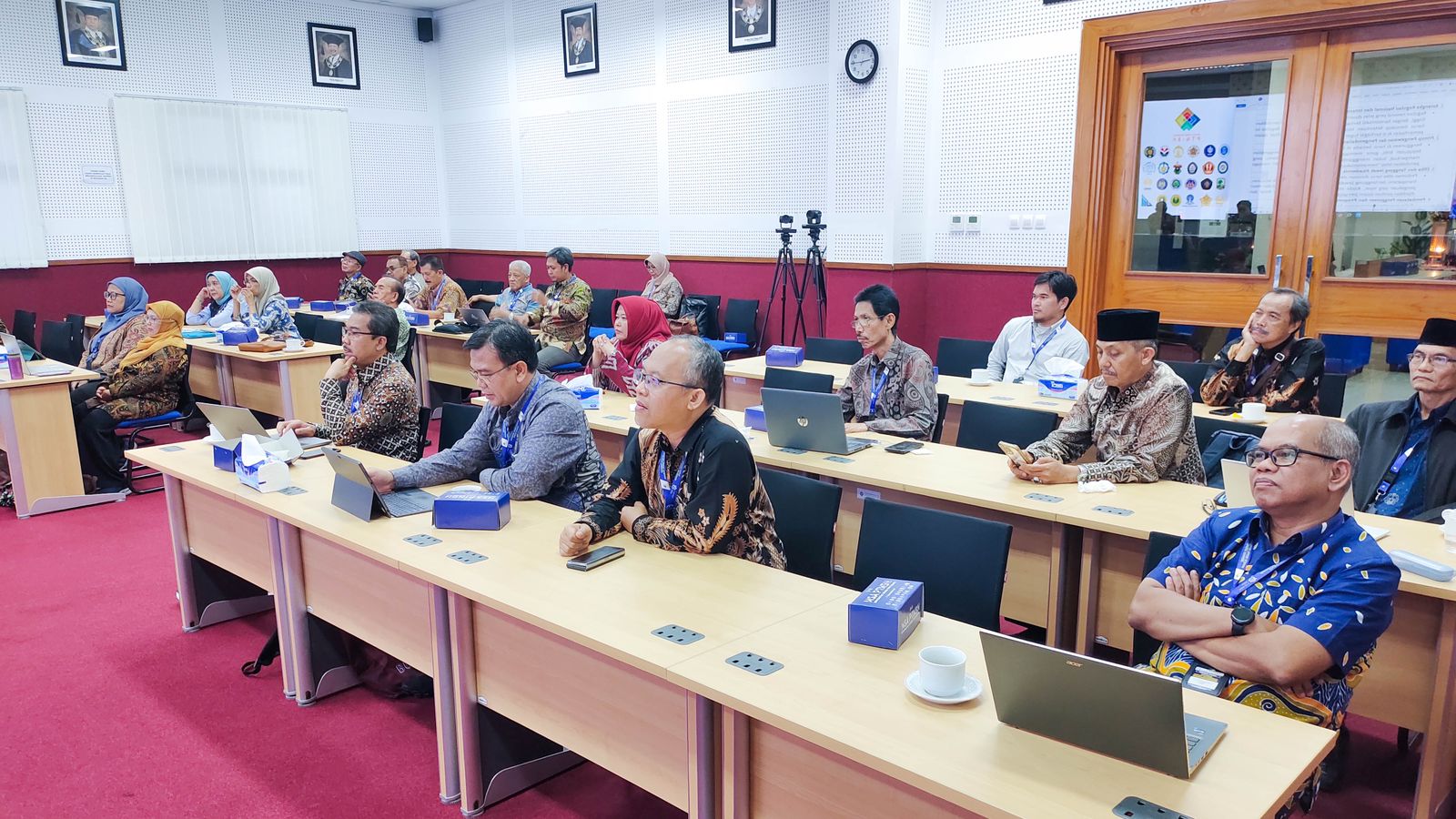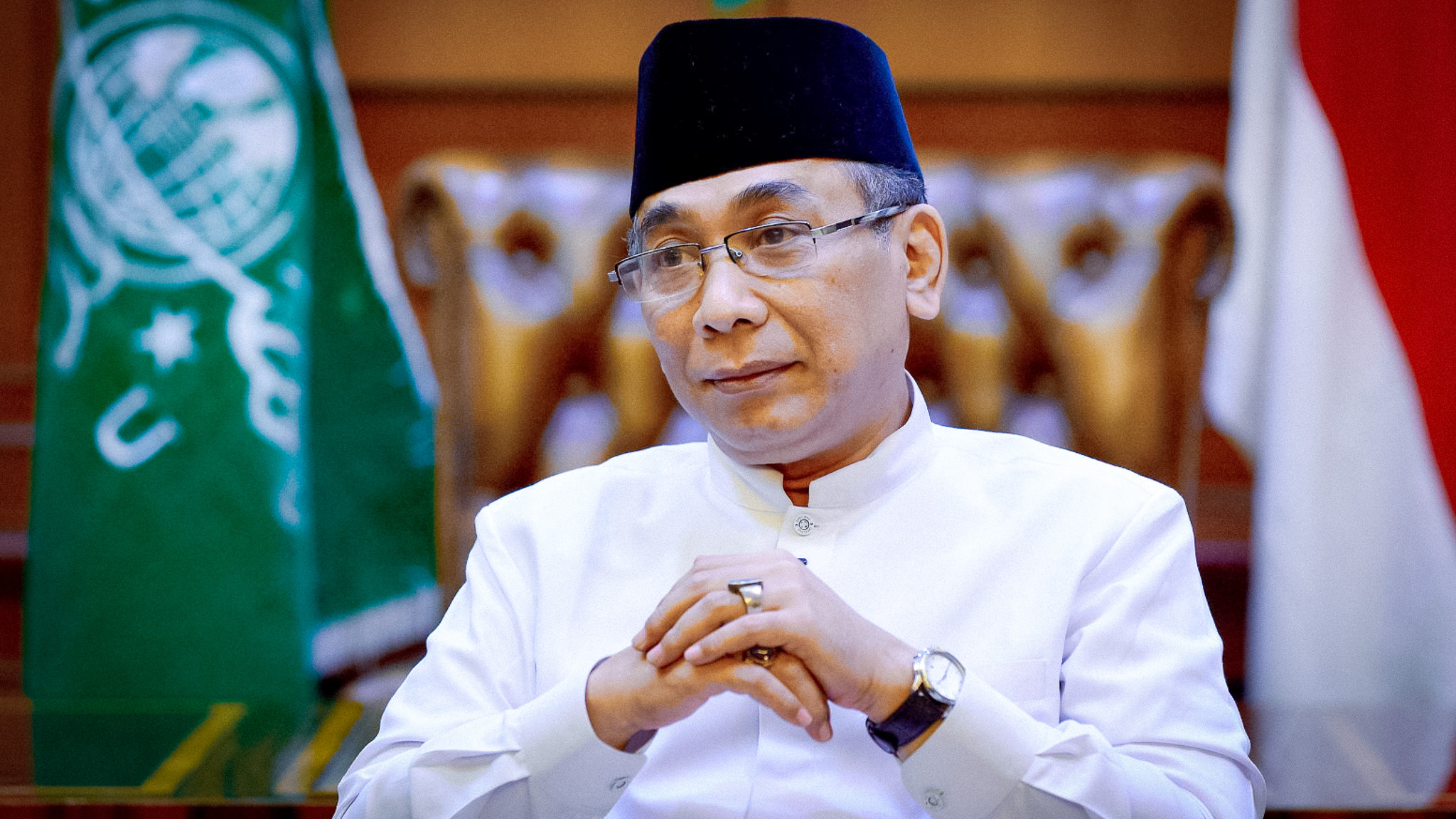Bridging the Archipelago and the Nile
February 18, 2025Contributor: Dadi Darmadi
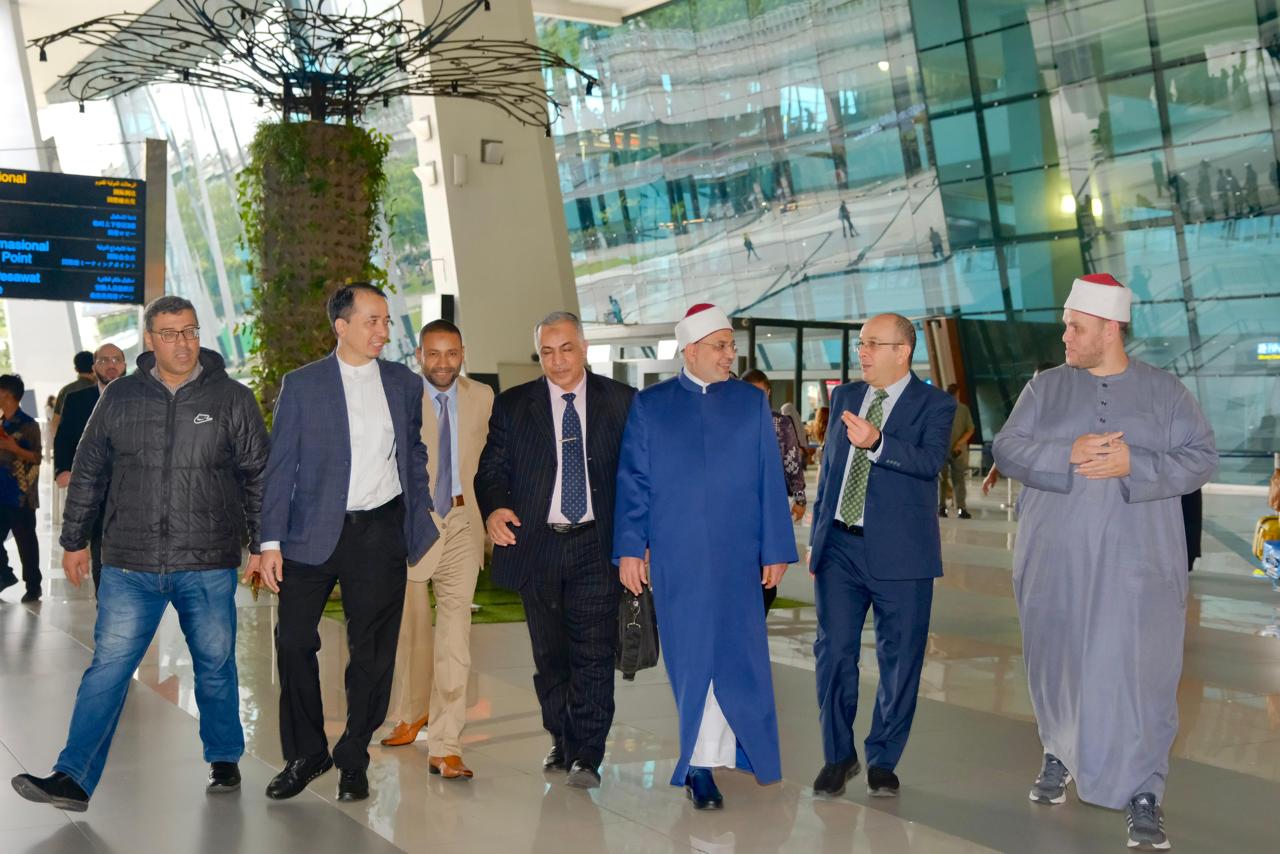
DEPOK, Indonesia — This week, Universitas Islam Internasional Indonesia (UIII) will host an event of profound academic and historical significance as it welcomes a distinguished delegation from Al-Azhar University, Cairo. Leading the visit is the esteemed Sheikh Salamah Dawud, the Rector of Al-Azhar University, whose presence underscores the deep-rooted ties between Indonesia and Egypt—ties forged not just through diplomacy, but through centuries of scholarly exchange and Islamic thought.
The event is marked by intellectual discourse and a commitment to future collaboration, serving as a renewed testament to Indonesia’s growing role as a hub of global Islamic scholarship. For decades, Al-Azhar has been an intellectual basis for thousands of Indonesian students who have traveled to Cairo in pursuit of Islamic knowledge. Many of them, upon returning, have become influential scholars and leaders, shaping Indonesia’s uniquely pluralistic and moderate Islamic landscape.
A Legacy of Friendship and Knowledge Exchange
Long before diplomatic relations were formally established, the intellectual and religious exchanges between Indonesia and Egypt had already formed an enduring bridge between the two nations. In 1947, Egypt became the first country to recognize Indonesia’s independence—a diplomatic move that solidified a deep-seated friendship between the two predominantly Muslim nations. This recognition was more than a political gesture; it symbolized a shared vision for an Islamic world rooted in scholarship, dialogue, and global engagement.
At the heart of this relationship stands Al-Azhar University, an institution with over a millennium of scholarly tradition. It has nurtured generations of Indonesian scholars, from Muhammad Abduh’s students in the early 20th century to contemporary Islamic intellectuals who continue to shape religious discourse in Southeast Asia. The Sheikh’s visit to UIII represents not just a meeting of institutions but a reaffirmation of a historical and spiritual alliance.
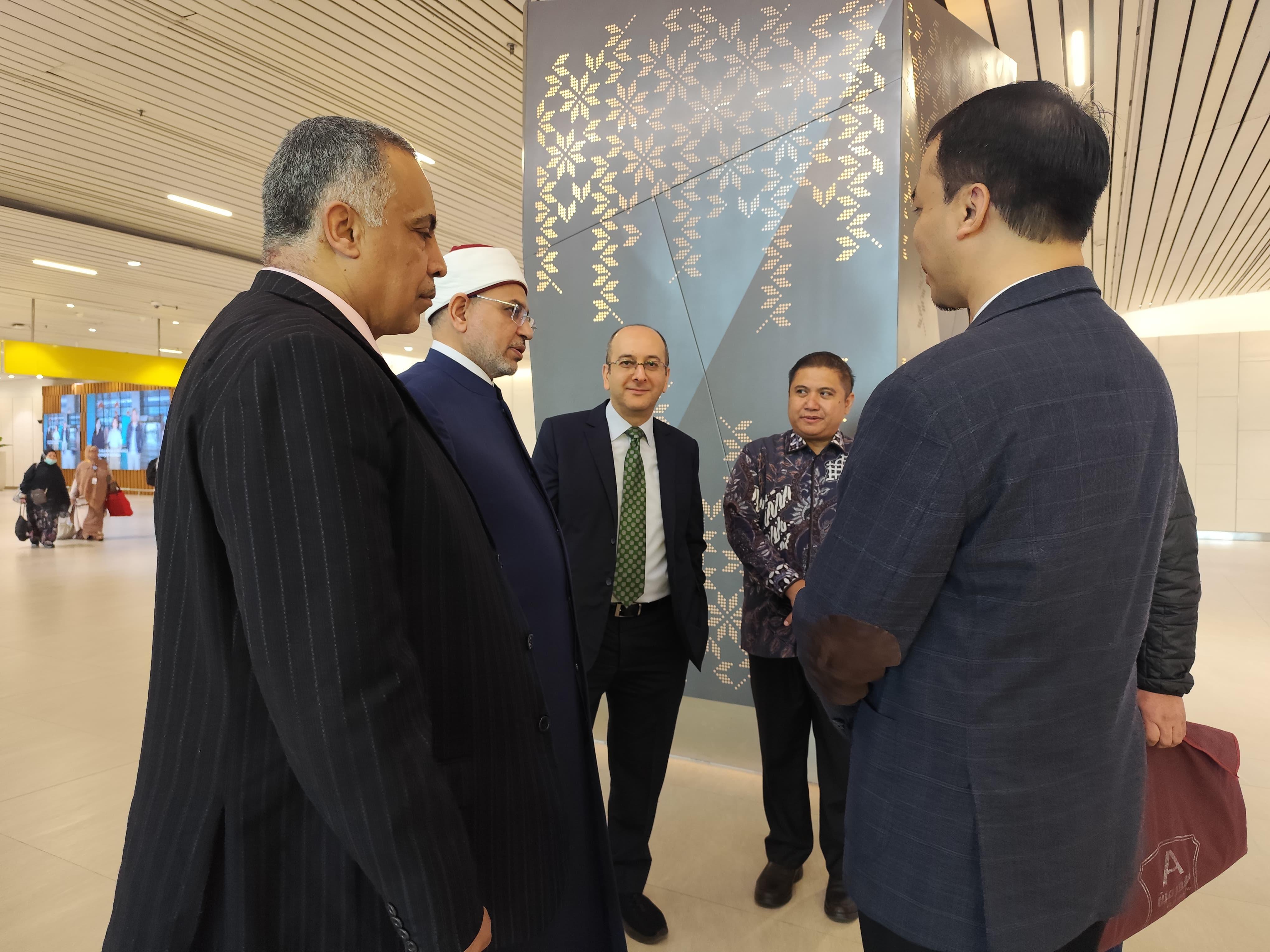
Strengthening Academic Collaborations
During the discussions at UIII, both institutions will outline strategic plans for academic cooperation. Key initiatives include faculty and student exchange programs that allow scholars and students to immerse themselves in different cultural and intellectual environments, enriching the breadth of Islamic studies in both Indonesia and Egypt.
Joint research and publications are being developed to address contemporary challenges in Islamic thought, governance, and interfaith dialogue while maintaining Al-Azhar’s long-standing commitment to moderate and contextual Islamic interpretations.
Additionally, conferences and workshops are being established to provide platforms for scholars from both institutions to engage in discourse on pressing global issues, from environmental ethics in Islam to the role of faith in modern governance.
Efforts are also being made to expand digital Islamic learning, leveraging UIII’s technological and pedagogical advancements to ensure that traditional Islamic knowledge is accessible to a broader audience worldwide.
“This visit signifies a new chapter in our partnership,” said Prof. Jamhari, the Rector of UIII. “It is not merely an academic collaboration, but a shared mission to cultivate a future where Islamic scholarship is both deeply rooted in tradition and dynamically engaged with contemporary global issues,” he said.
Indonesia’s Growing Role in Global Islamic Scholarship
Indonesia, home to the world’s largest Muslim population, has long been a center of Islamic learning, blending classical teachings with a commitment to democracy and pluralism. With the establishment of UIII as an international research university focused on Islamic studies, social sciences, education, economics, and global affairs, Indonesia is positioning itself as a leading player in the intellectual discourse of the Muslim world.
The collaboration with Al-Azhar aligns seamlessly with this vision. By drawing upon Egypt’s long-standing theological tradition and Indonesia’s progressive and inclusive approach to Islam, the partnership aims to set a new precedent for global Islamic academia.
“This is not just about two universities working together,” remarked Ilyas Marwal, a faculty member at UIII’s Faculty of Islamic Studies. “It is about shaping the future of Islamic thought in a way that resonates across cultures and continents,” he said.
Looking Ahead
The visit is more than a ceremonial gesture—it is a reaffirmation of a shared intellectual heritage and a bold step toward collaborative innovation in Islamic education.
For students and scholars alike, the growing partnership between UIII and Al-Azhar University offers a glimpse into the future of Islamic academia—one that is interconnected, adaptive, and deeply engaged with the challenges of the modern world.
And as the sun sets over the tranquil campus of UIII, it becomes clear that this is not merely the conclusion of a day of discussions, but the beginning of a new era of scholarship and friendship between Indonesia and Egypt.
For more updates on UIII’s academic initiatives and partnerships, visit uiii.ac.id (UIII’s official website).
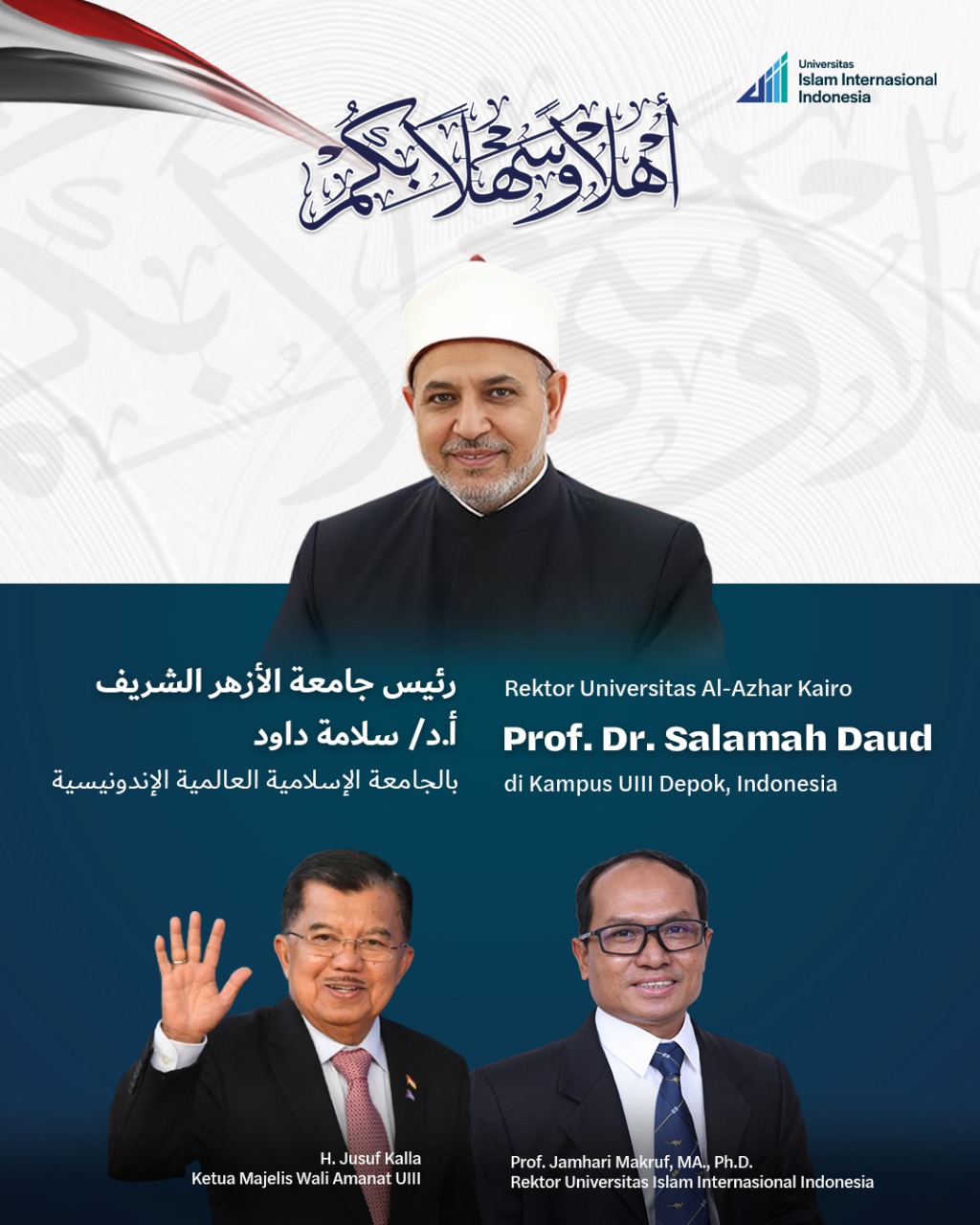
- Hartford International University for Religion and Peace Signs MOU with UIII for Future Academic Partnership
- Professor Dian Masyita Honored as a Changemaker in Empowering Communities
- Upcoming International Conference: Faith, Science, and the Future of Environmental Action
- Renowned Al-Azhar Rector Sheikh Salamah Dawud to Deliver Public Lecture at UIII Campus in Depok
- Info Session on FEB’s Dual Degree Programs Through LPDP Scholarships
- UIII Land Clearance Marks a Milestone Toward a World-Class Islamic University
- American Imam Abdul Malik Mujahid Visits UIII, Encourages Stronger Ummah to Support Muslim Minorities
- Gate Design Competition of UIII Campus: Call for Innovative Architects
- Ministry of Religious Affairs Welcomes Prof. Dr. Suyitno as Director General of Islamic Education
- Prof. Kamaruddin Amin Inaugurated as Secretary General of the Ministry of Religious Affairs
